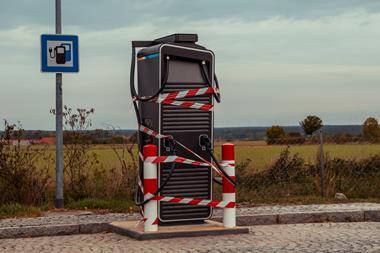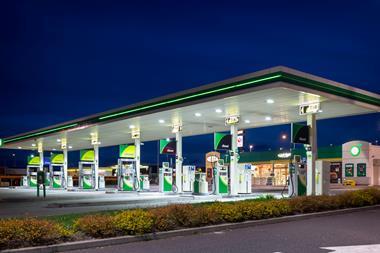A strictly personal view of Mo’gas’ musings on the PRA (April 2009) is that, unlike the curate’s egg, they were good in parts. Let us not beat about the bush! The PRA’s ’state of flux’ as it was euphemistically described, is a long overdue attempt to get parts of the organisation fit for purpose and able to operate within their budget. The issue as to whether the PRA should be allied to any other organisation is, in reality, an irrelevance. If the PRA cannot live within the budget determined by the level of its income from its membership, then no other organisation, be it the Federation of Petroleum Suppliers or the Association of Convenience Stores, would be interested in it anyway. And if it can live within its income, it is far better where it is. Within the RMIF there is no risk of a conflict of interest arising from organisations supplying oil companies or their subsidiaries in membership.
The petrol retailing sector is at the start of an historic change which will eliminate one of the long-standing drains on retailer profitability - stock ’losses’ from hot fuel.
PRA member Jimmy Beveridge, from Bonnybridge in Falkirk, has been the first to install automatic temperature compensation dispensers to give motorists standard litres for petrol and diesel. Many others who understand the opportunity are rushing to do likewise. Jimmy has set the ball rolling for a process recommended by the National Engineering Laboratory (NEL) report in 1999 - the use of standard litres from supplier to retailer and from retailer to motorist - which takes fuel temperature off the retailer’s agenda. Who initiated the NEL report with its letters to Ministers? The PRA. Some retailers may also recall that it was only when the PRA wrote to Ministers that certain oil suppliers began to give allowances for deliveries from ’hot fuel’ terminals.
The Association has also seen a seven-year campaign come to fruition last December, with the passing of the Legislative Reform (Verification of Weighing and Measuring Equipment) Order 2008. This has made it possible for installers and repairers of retail dispensers to be approved through the National Measurement Service to verify the meters which they have adjusted. This saves petrol retailers the time, trouble and expense of waiting for local Trading Standards to arrive.
Yes! Change does take time, especially when government departments, such as the Department for Business, Enterprise and Regulatory Reform (DBERR) seemed immune to the message that oil majors own just 18% of petrol retail sites and supermarkets 14 %, with 68% owned by independents. As small businesses are now the major employers in the UK, they are gaining a larger voice.
Against this background, it is depressing that Mo’gas can only point to the PRA’s great success in getting the public to understand that they are paying a fortune at the pump because of taxation. It may have given PRA members a warm feeling when they watched Ray Holloway’s commentary on the latest petrol price rise on TV, but warm feelings don’t bring home the bacon. And why should Ray have to defend petrol prices? That, surely, is the job of the oil suppliers who ultimately determine Platts prices.
It may be being too harsh to say that anyone can run a shop, but it takes a real professional to run a petrol station effectively. The plain facts are that, with the increasing technical complexity of service stations, petrol retailers ignore the benefits of PRA membership at their peril. What the PRA needs is more members to support its programme and benefit from its services. Independent petrol retailers are not so thick on the ground that they can afford the luxury of ’a house divided’. If the PRA, under new management, is not meeting your needs then take steps to change it from the inside by signing up.
----
=== distinguished career ===
An honours graduate in chemistry, Chartered Chemist, Fellow of the Royal Society of Chemistry and Fellow of the Energy Institute, Peter Barlow has had a long and distinguished career in the oil industry. He worked for Shell for 32 years, spending most of that time at the Thornton Research Centre in Cheshire. He chaired the UKPIA Fuels Committee for five years, and the British Standards Institution’s Petroleum Standards Policy Committee. He joined the Retail Motor Industry Federation in 1993, and since leaving in July 1999, has continued to provide advice and support to the RMIF and PRA.



























No comments yet